International Commercial Arbitration: A Comprehensive Legal Report
VerifiedAdded on 2022/10/17
|9
|844
|10
Report
AI Summary
This report provides an overview of international commercial arbitration, a crucial mechanism for resolving disputes in international trade. It explores the concept of arbitration, emphasizing its role in providing neutrality and efficiency compared to traditional litigation. The report delves into the freedom of arbitration, highlighting the ability of parties to incorporate arbitration clauses and choose arbitrators. It examines essential norms such as natural justice principles, including the right to a fair hearing and the finality of arbitral decisions. The concept of party autonomy is central, emphasizing the discretion granted to arbitrators within legal and public policy limitations. The report references key legal frameworks, including the UNCITRAL Model Law and the New York Convention, and discusses limitations to arbitration autonomy. The report analyzes the validity of arbitration agreements and the importance of procedural compliance, concluding with relevant case law and legal references.
1 out of 9
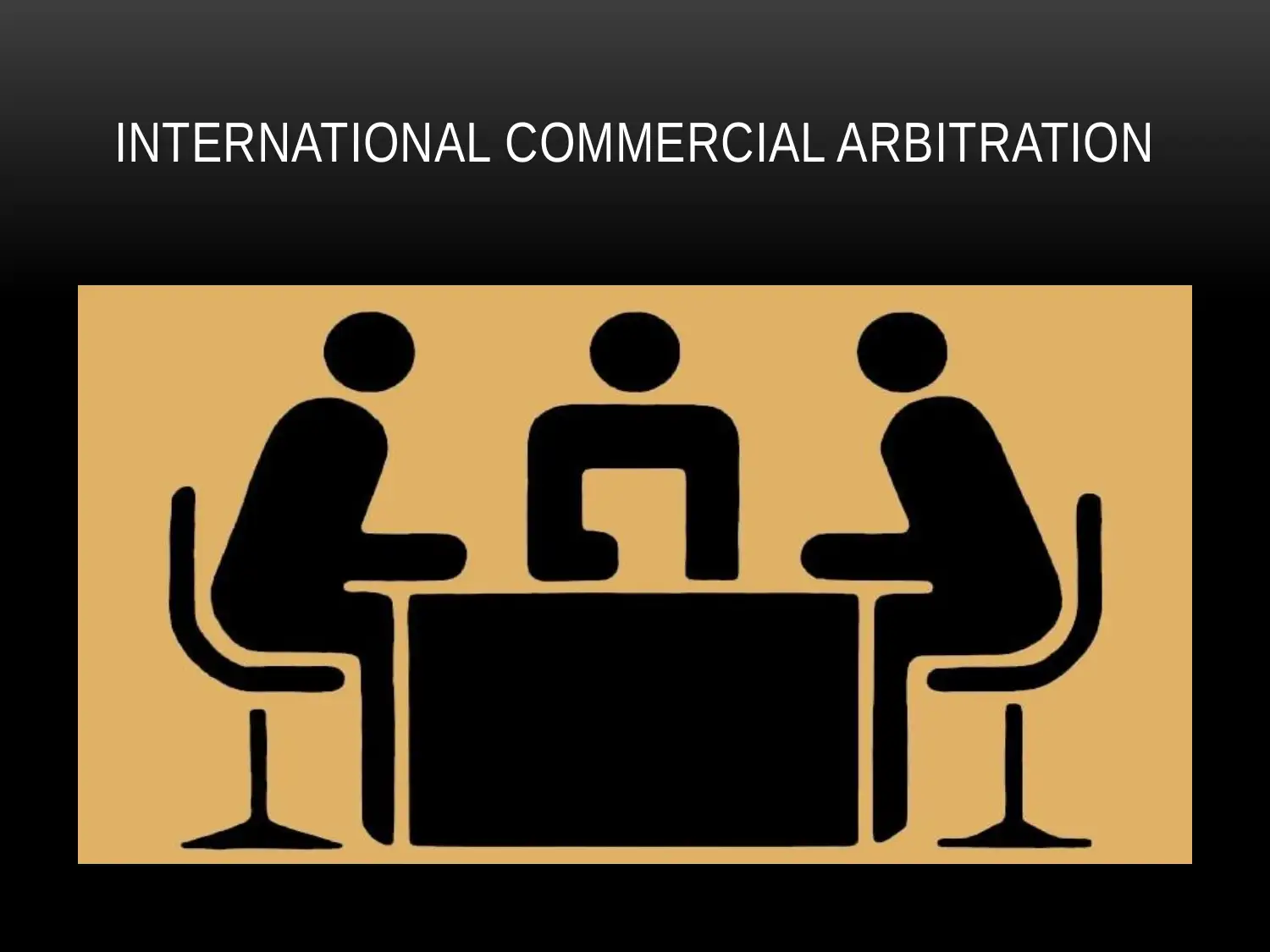
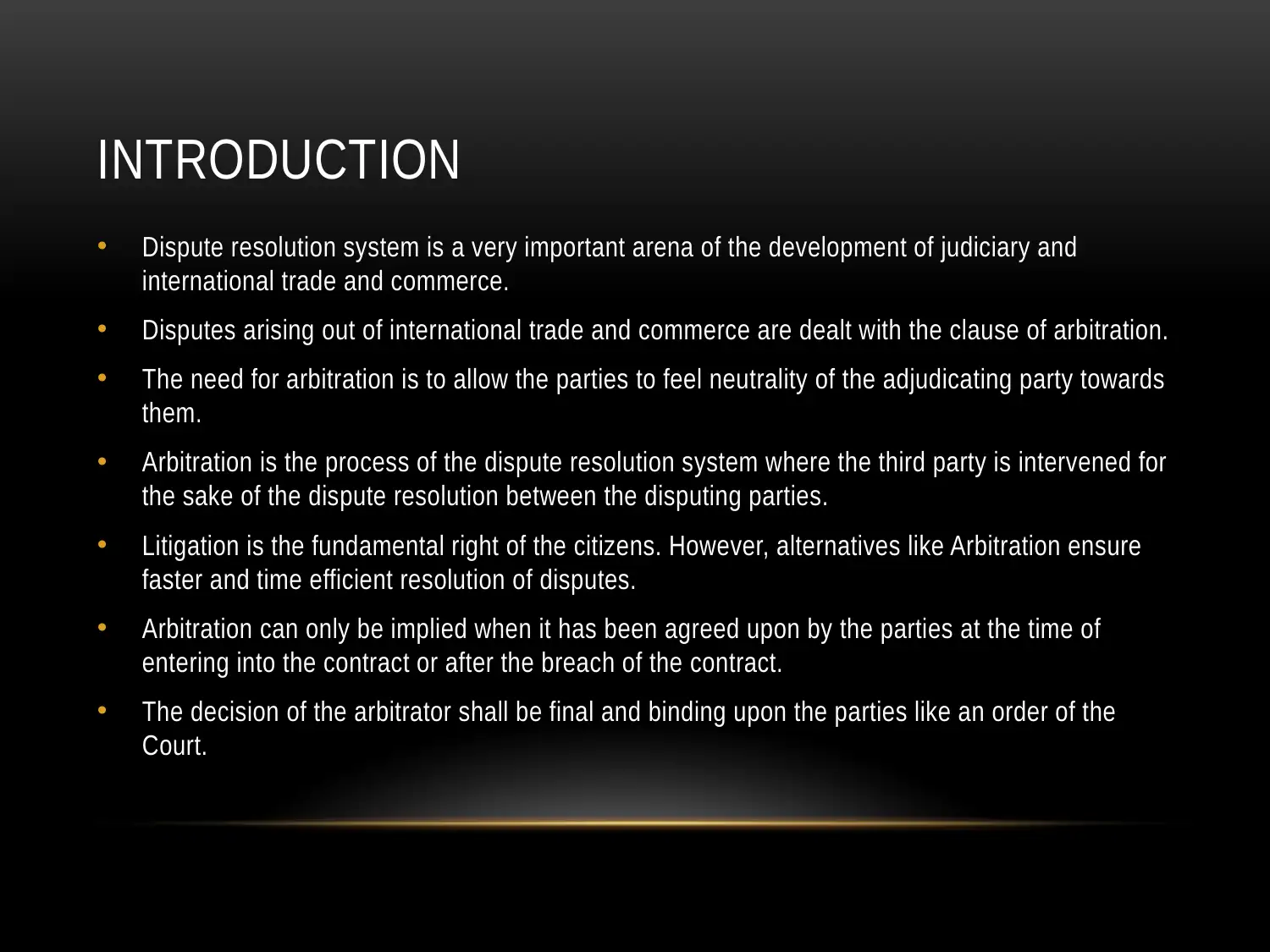
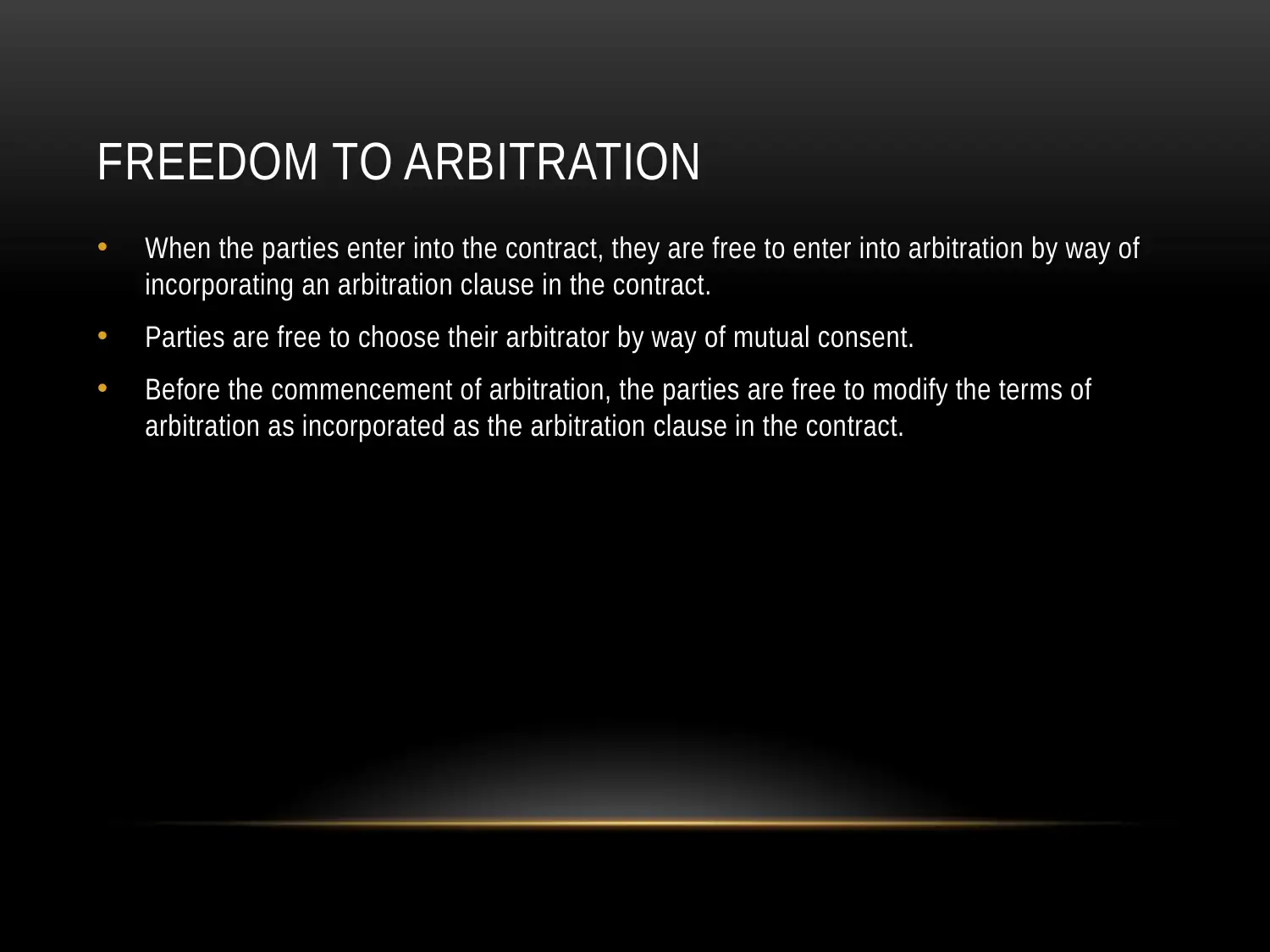

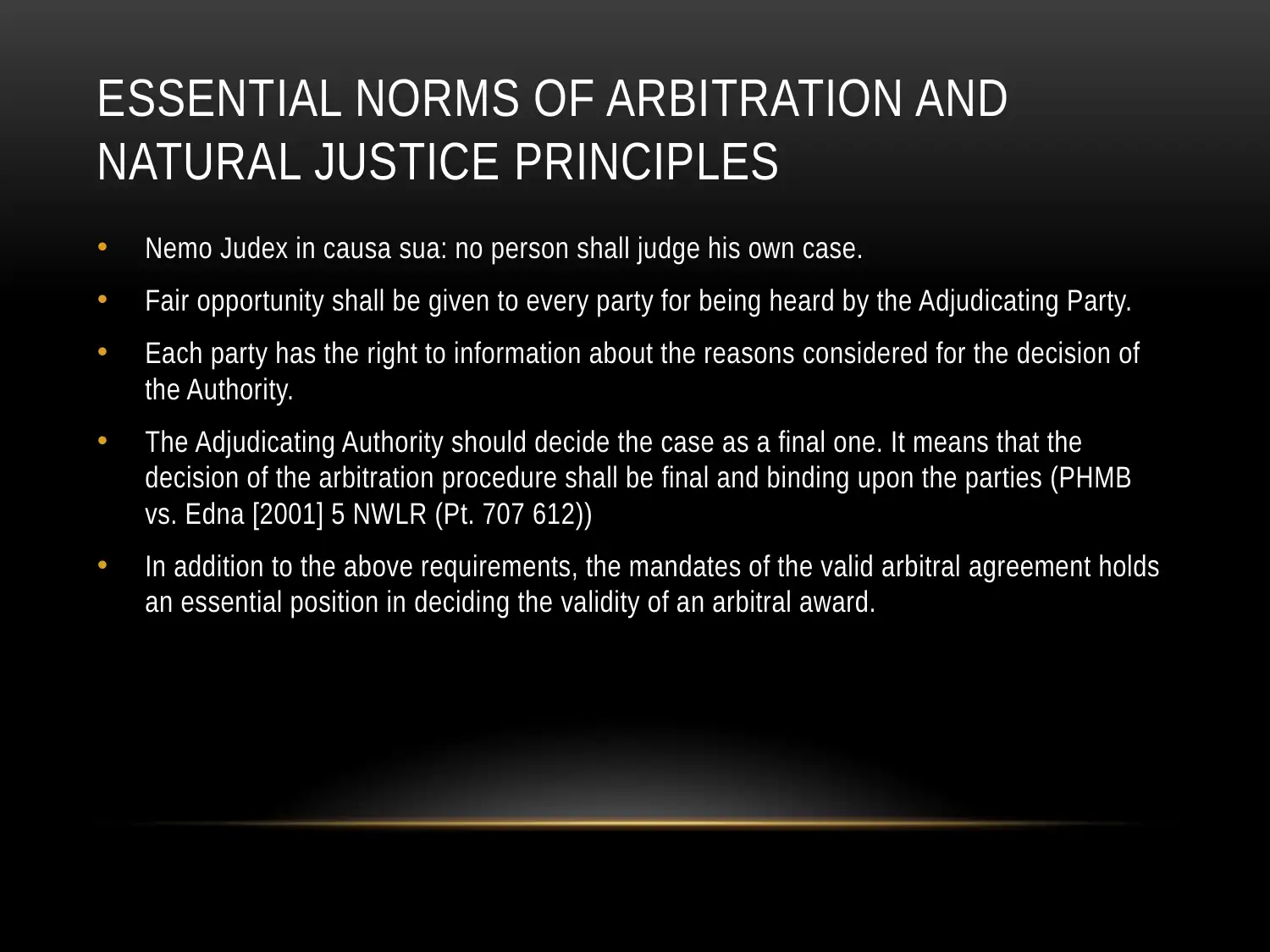
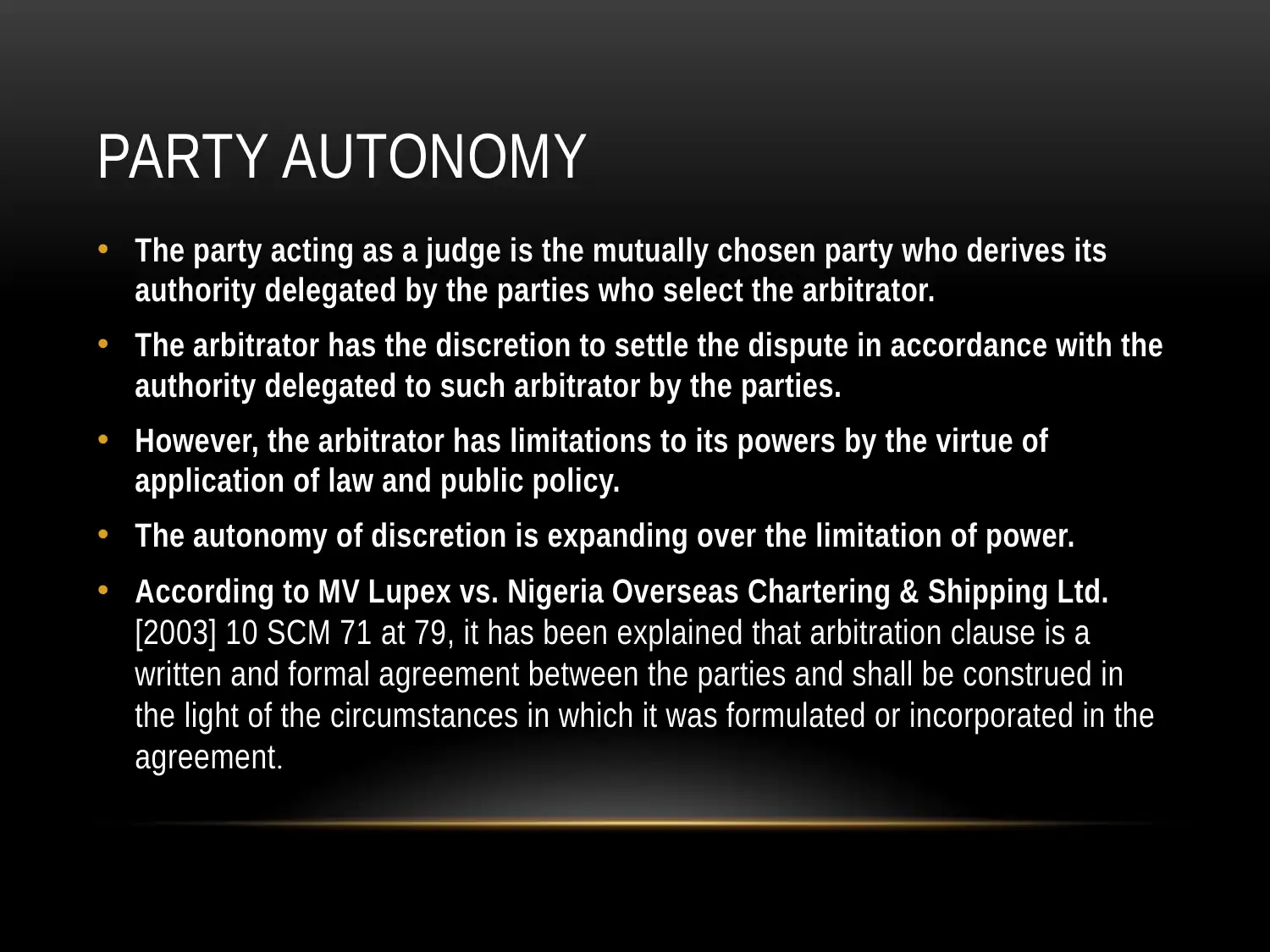
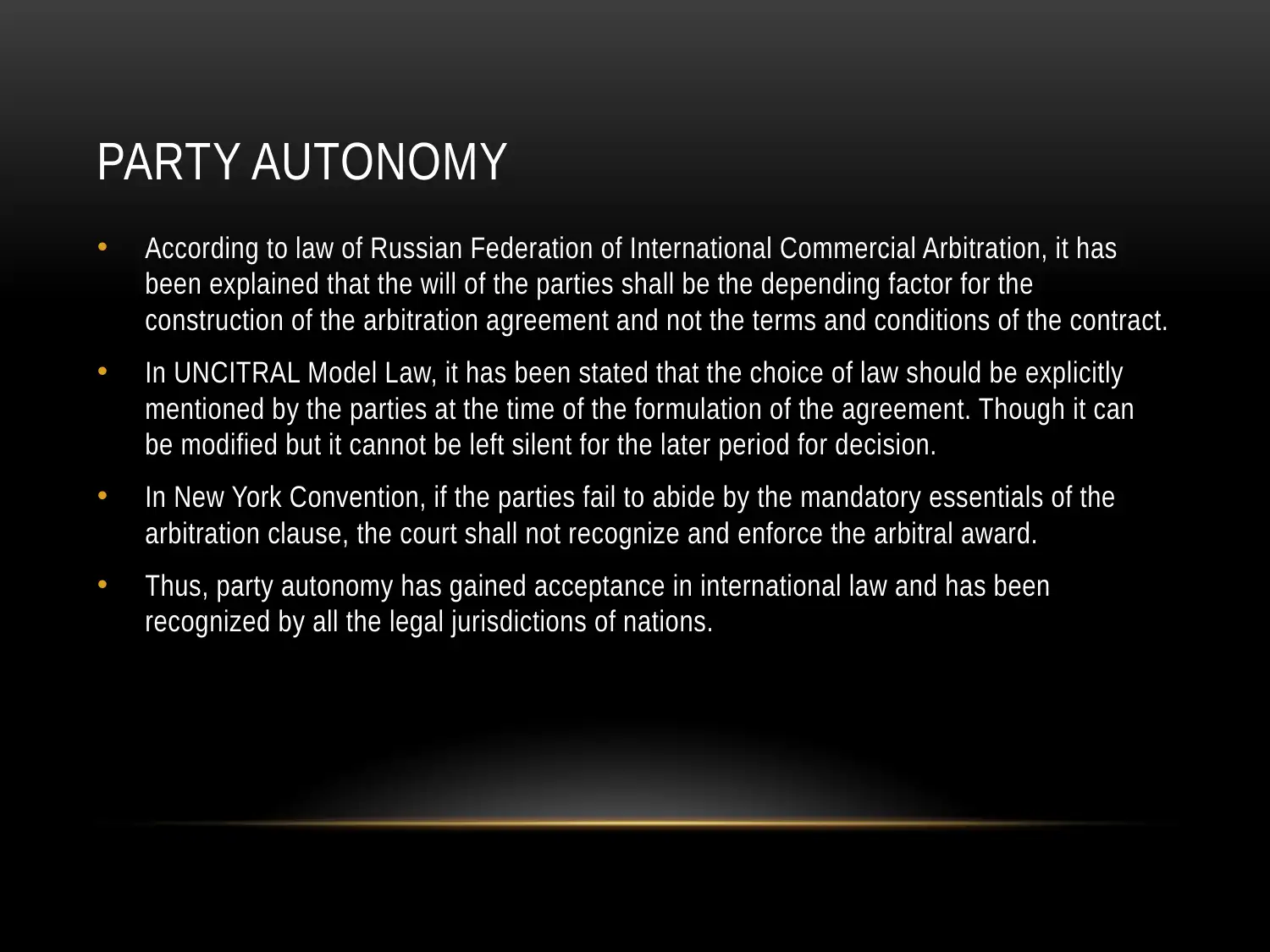
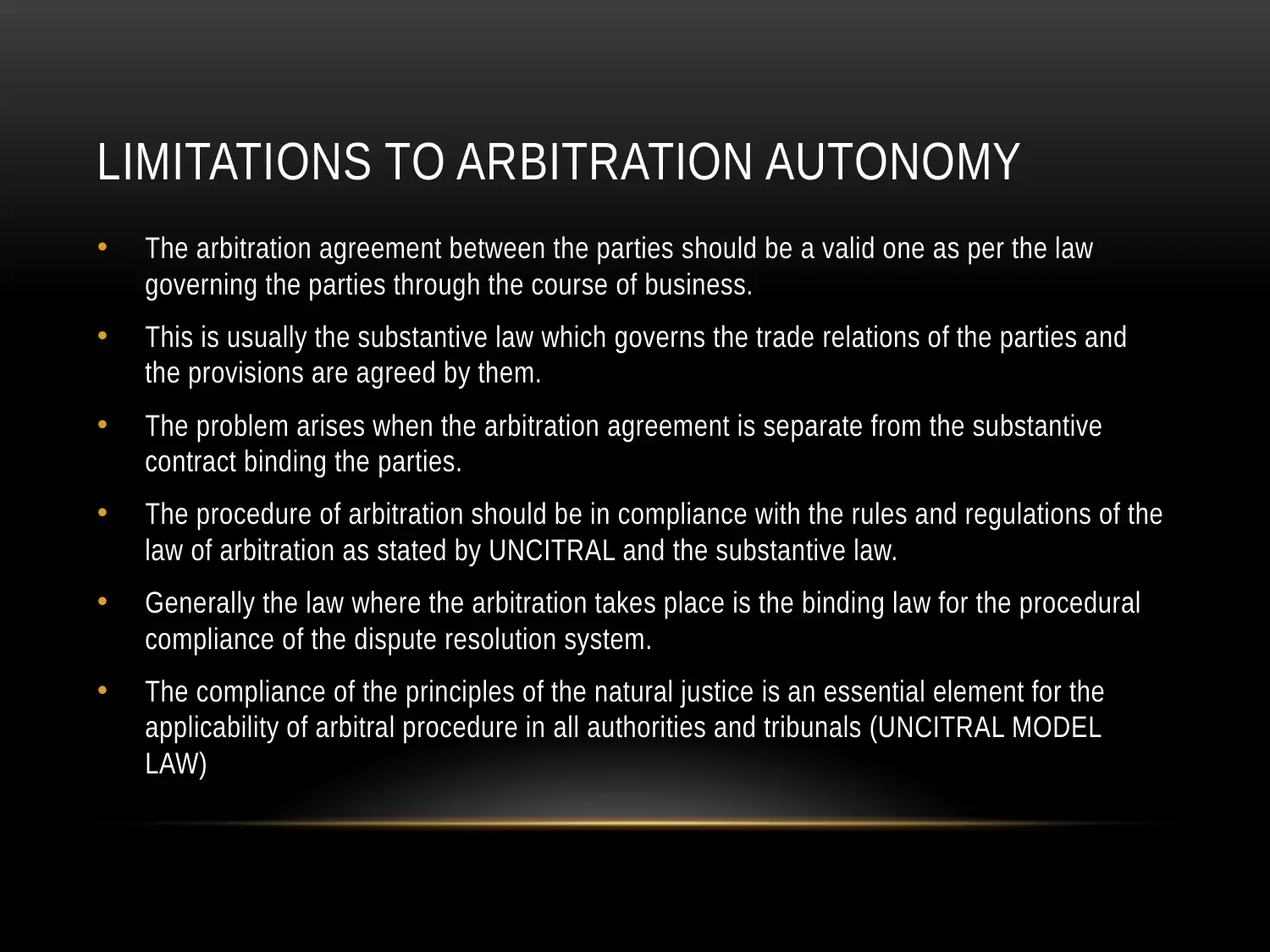
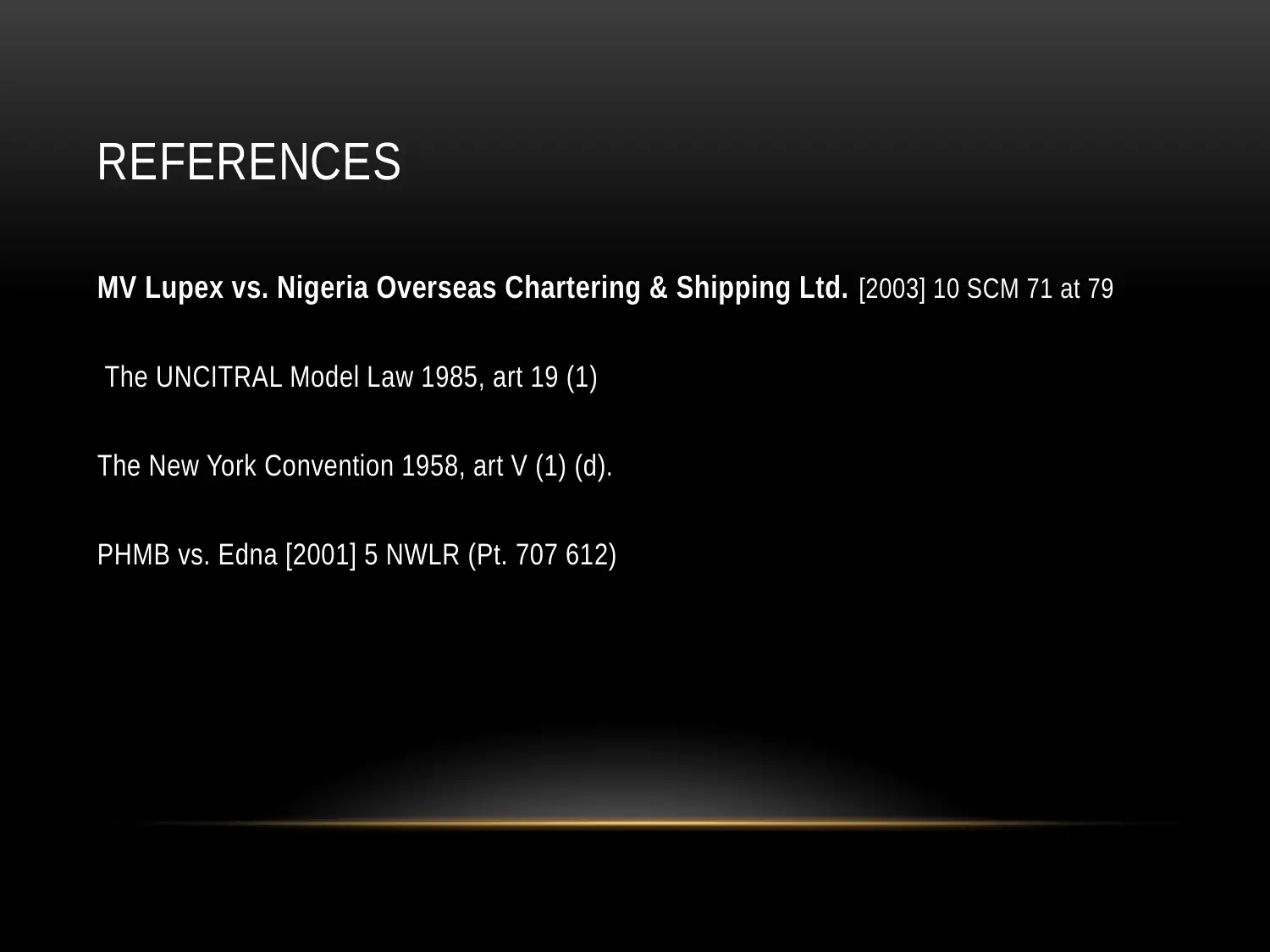







![[object Object]](/_next/static/media/star-bottom.7253800d.svg)